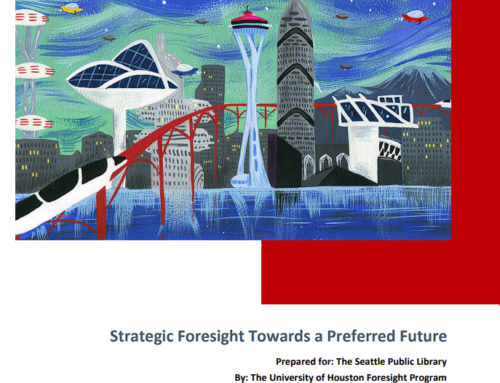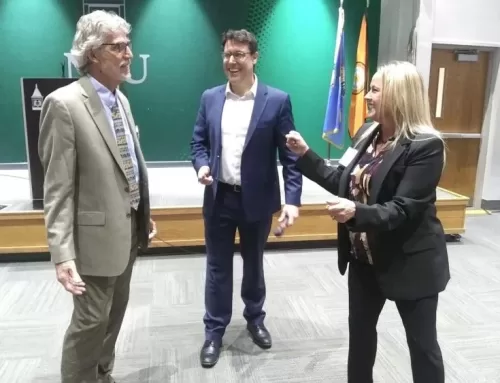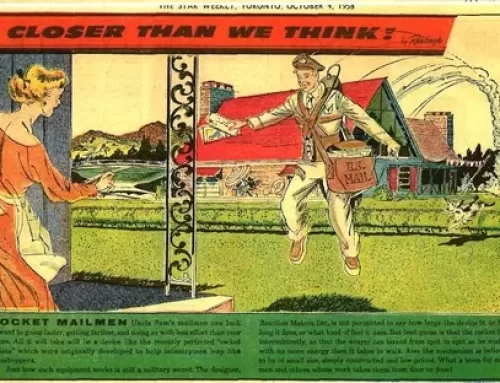
Ah, the digital smog, how you are so tiresome! This week, Houston Futures is putting on its Spring Strategic Foresight Conference in Houston at the awesome Minute Maid Park (Go Astros!), and I had many of the would-be new foresight professionals ask me how I scan or look for stuff in the big scary world of everything out there.
I started blogging and scanning on this site about a year ago (290 posts and counting), and while I feel I’m not a scanning master, I think I definitely have gotten my feet wet. So I put together a list of scanning commandments that anyone can live by to help you filter out the best of what’s out there in the digital deluge.
1. Thou shall know what a scan is

While all roads lead to somewhere, looking in the wrong direction can get you nowhere, so knowing what to look for when you’re finding information is very important. Scans are by definition the identification of change that can have an impact on a domain that changes something in the framework in a major way. While maybe anything could be a scanning hit, we normally only qualify good ones as those that have and produce a meaningful impact. In our program, we use a form that helps us breakdown what we think is meaningful in what we find, but the real critical aspect of scanning comes in breaking down the credibility, likelihood, novelty, and timeliness of what you find.
2. Thou shall ask the 5 Whys
Now while the 5 Whys can be a great tool for just about anything (ask them to yourself anytime you’re frustrated with Congress or your noisy neighbor), using the method is even more critical when thinking about what you found. Your first Why is most critical way to start, so you should always start with something that may be frightening to a bold foresight pro like yourself: “Why is this important or so what?” When you start out by critically analyzing your own great finding or hit, you can then drag down into abyss of whys. This gives you the meat and potatoes of what your piece means and how it may be debunked or solidified later.
3. Thou shall use all the sources possible
While scanning is definitely found in the written world, scanning can be anywhere and everywhere. I never stop looking around and get scanning in every place I go, see, listen in on, or watch. Foresight sites (KurzweilAI, IO9, Next Big Future), foresight blogs (check out Houston Futures’ own Verne Wheelwright’s listing of them), popular science blogs (PopSci, Science Daily, Wired), and alternative and fringey sites (Alternet, Disinfo, Adbusters). These sites go to the source (science journals, engineers, conferences) to give you what may be coming, so it saves you from traveling around the world and having the science journal yearly dues.
Videos and infographics have become just as useful to understanding the future as news articles, so you have to filter through those as much as possible. I firmly drink the TED Talk Kool Aid, but videos come from everywhere and many blogs and news sources offer videos with their stories as well. Infographics have become more prevalent in today’s easy digitally-procured world, so finding great sites that share them (Cool Infographics, Visual.ly) is another way to learn (and champion) the future. Podcasts (Fast Forward Radio, FERN Audio) are awesome when it comes to longer forms of information, but they’re a great place to get new ideas.
Scanning comes from everywhere to include radio (NPR), movies, poems, and performances. Just keep your mind open and your eyes soft.
4. Thou shall understand what type of information you are getting
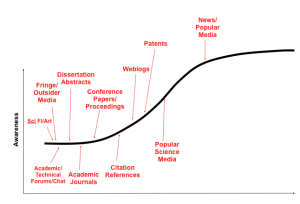
Exploring the broad media is a great part of scanning. I use the IPhone app Pulse to keep up on everything from high tech to architecture to sports to culture to politics.
But, and a big but, we have to explore other types of information and in other places. If you only scan from certain sources, you start to get the scanning echo chamber where everybody is saying the same things. Upper level scanning forces us to go beyond just what we’re comfortable in, so recognizing what’s the broad and what’s the fringey is very important.
The key is to us a good mix of as many type as you can, but you should at least recognize what you got.
5. Thou shall understand the power of words
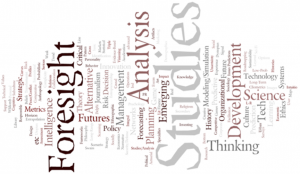
Knowing the language of searching is just as important as where to find it. Using Booleans might be a tad old school, but they can be very useful in searching for exact ideas on the future of your domain or interest. I firmly believe in using key words to find out about the future such as “future of”, “2050” or “New World” and merging these with your domain or interest as well as size words such as “global” or “world”. Also use transformational language such as “transition”, “change”, “transformation”, “development”, and “evolution” as well as “history”, “future”, “trend”, “forecast”, and “era.” Grab a thesaurus and get as many similar words for your domain. You then want to make a boolean of your search. Here’s an example of one I did on the future of employment:
Global (or World or International) and (post industrial or services or knowledge or information) and (transition or change or transformation or development or evolution) and history or (future or trend or forecast or era or scenario)
You can also use this technique to use automated searching applications such as Google Alerts to automatically get stuff everyday. Do not use the boolean part of it though, just use the key words such as “future of robotics” or “online education 2050.”
Using your words well is so important to process, and making sense of how to use them properly will help you sharpen your scanning techniques.
6. Thou shall follow the leaders, movers, shakers, and dreamers
I used to be a electronic music deejay in my early 20s, and I was always playing the best records. Everyone always asked me where and how I found all this stuff, but I never told them. (If I did, they’d steal my sets!) But I’ll tell you now: I knew that genre better than anyone. I memorized track names reading everything on my records, producer names, record labels, where they recorded, and how to further catalog my catalogue into types.
Scanning is the same way. You need to understand your domain better than anyone else. Know who the thought leaders are, who reports on it the best, we says the most provocative things, who designs/creates/visualizes the inside of it.
Twitter and its many tools is a great way to find these folks, but like I did when I scoured my record labels, you need to read the fine print of what you’re reading. Is a certain university or set of scientists leading the charge on your domain? Is a certain artist impacting fashion like no one else? Know who is driving the change, and you’ll know where that change may go.
7. Thou shall listen (and share) in on conversation
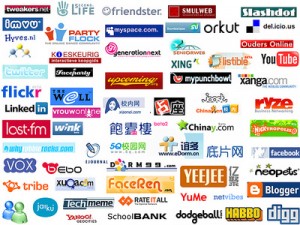
This is a commandment where networking plays the biggest role. You can never know everything, so brainstorming and listening in on others’ conversations is great to find even more info. I suggest joining forums specific to your domain, using Tweetdeck and similar tools to grab conversation. You should also see if you can join foresight groups such as Shaping Tomorrow, APF, WFS, and FERN to see what other foresight pros are talking about. Know what everybody else knows is not only mandatory; it also makes you figure out what you may not know (and may save some face for you later.)
8. Thou shall learn your library system
When I did electrical engineering in the Air Force, I had a little green book where I wrote all the part numbers, types of jobs, and other short cuts I used when I worked on F-16 fighter jets. I housed everything in that little book because when I needed quick information, I could grab it quickly and answer all questions with confidence.
That quick efficiency is what makes your “info house” very important. You have a couple options to use: blogs, your desktop, bookmarking.
My library has been this blog your reading which I use WordPress for, but there’s numerous other sources for blogs (Tumblr, Live Journal, Posterous, Google Sites, Weebly). These sites are fairly user-friendly, and you can get as creative as you want. If you just want to dump your stuff somewhere in an open space, feel free to use these and you can come back to them again and again. Scoop It is also a great way to grab, drag, and drop in a fashionable and easy way.
Bookmarking is also a great way to keep all your stuff. You can use any one you wish (Diigo, Delicious, Pearltrees), so feel free to explore how bookmarking works. They’re a great tool to use.
9. Thou shall filter and group your filtered

While you’re dropping your stuff off somewhere, now you gotta catalog it properly. This part of the process is up to you. You know your domain better than me, but keep in mind that most of the time you can filter your stuff by key concepts such as trends, wildcards, trend reversals, and other ways to differentiate between what you got.
On Houston Futures, we spread our broad scans across talks, foresight, education, and even our own Houston Futures news, but the filtering mechanism is something you create on your own. You know how you want to group your stuff better than anyone. Just allow your filtering of your filters to make logical sense as you take the stuff you grab and throw it in somewhere.
10. Thou shall never stop scanning
You are on 24-7. To be a part of the foresight world means having a keen, sharpened eye on everything, 3 inches and 5 miles wide. So never stop exploring and seeing what’s out there.
It’s an exciting world to know. Get to knowing it!

